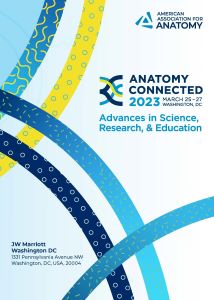Anatomy Education Posters
Poster:: Anatomy Education Posters
78 - The Medical Student Experience with Prework
Saturday, March 25, 2023
4:30 PM - 6:30 PM US EST
Room: Capitol Ballroom DEF
Poster Board Number: 78
There are separate poster presentation times for odd and even posters.
Odd poster #s – first hour
Even poster #s – second hour
There are separate poster presentation times for odd and even posters.
Odd poster #s – first hour
Even poster #s – second hour

Nicole DeVaul, PhD, MA (she/her/hers)
Assistant Professor
The George Washington University
George Washington University
Washington, District of Columbia, United States
Presenting Author(s)
Abstract Body : Background. Medical education is shifting to more active learning such as flipped classroom but these activities are unsuccessful when students don’t complete the associated prework. The literature is lacking information on why students don’t complete prework and what would motivate them to do so. This qualitative study aims to answer those questions through the view of Expectancy-Value Motivation Theory (EVT).
Methods Thirteen pre-clinical medical students participated in a semi-structured basic interview study investigating their experience with prework. Interview transcripts were coded and analyzed for themes.
Results Themes identified that influence student motivation to complete prework include student routines, study environments, format and topic of prework, students’ prior knowledge and peer opinion. Students develop particular routines they find successful for their studies. They explain how time in their schedules and amount of time prework takes to complete plays a role in their study environment which must be favorable in order to complete prework. Students explain that video prework is more favorable compared to reading assignments and how opinions of their peers influence their decision to complete prework. Each of these factors influence student motivation to complete prework.
Discussion The findings support EVT in that students consider factors within these themes when determining if prework is valued and if they are capable of completing it. EVT allows us to understand how these factors are related, how some are more important than others and how they influence motivation to complete prework. Using this information, instructors can tailor assignments in a way that will increase student motivation to complete prework resulting in effective active learning sessions. The literature does not address how to motivate students and implement prework. This study provides the first step in understanding the medical student experience with prework in order to inform faculty on how to increase motivation to complete those assignments.
Methods Thirteen pre-clinical medical students participated in a semi-structured basic interview study investigating their experience with prework. Interview transcripts were coded and analyzed for themes.
Results Themes identified that influence student motivation to complete prework include student routines, study environments, format and topic of prework, students’ prior knowledge and peer opinion. Students develop particular routines they find successful for their studies. They explain how time in their schedules and amount of time prework takes to complete plays a role in their study environment which must be favorable in order to complete prework. Students explain that video prework is more favorable compared to reading assignments and how opinions of their peers influence their decision to complete prework. Each of these factors influence student motivation to complete prework.
Discussion The findings support EVT in that students consider factors within these themes when determining if prework is valued and if they are capable of completing it. EVT allows us to understand how these factors are related, how some are more important than others and how they influence motivation to complete prework. Using this information, instructors can tailor assignments in a way that will increase student motivation to complete prework resulting in effective active learning sessions. The literature does not address how to motivate students and implement prework. This study provides the first step in understanding the medical student experience with prework in order to inform faculty on how to increase motivation to complete those assignments.

